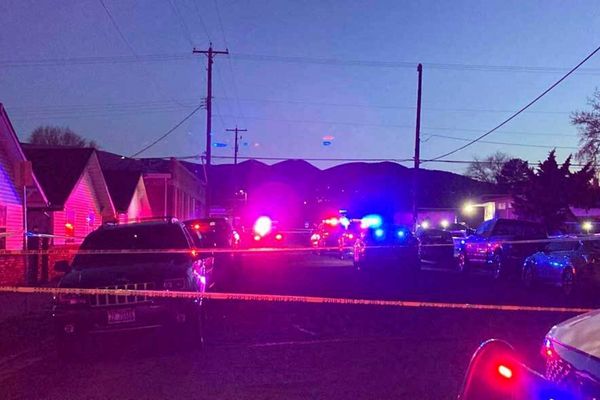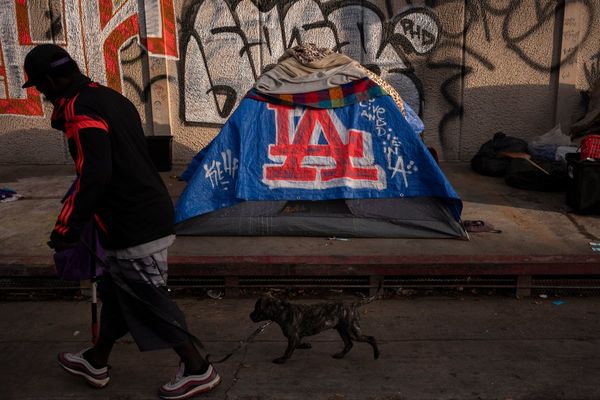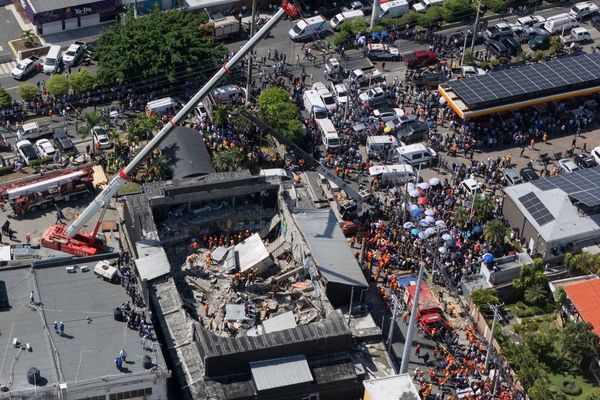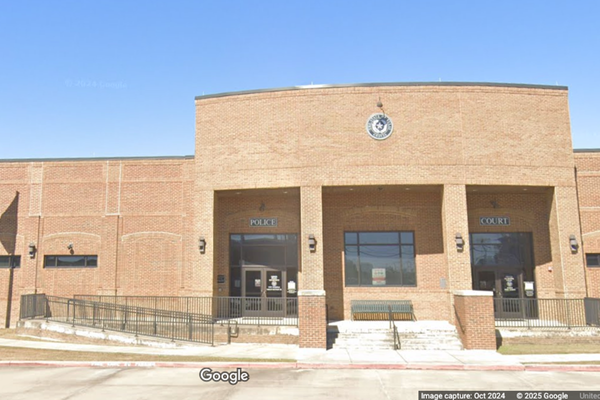A man accused of obstructing a Rural Fire Service (RFS) volunteer in a manner that left him injured has been found not guilty by a Gold Coast court, raising questions about the adequacy of legal protection for firefighters.
Ashley James Barrett, 51, appeared in Southport Magistrates Court on Friday, charged with the obstruction of persons performing functions under the Fire and Emergency Services Act.
It was alleged that while conducting a prohibited burn-off at his Gold Coast hinterland property during a total fire ban on December 7, 2020, Mr Barrett prevented a RFS volunteer from entering the property to extinguish the small blaze.
Mr Barrett previously admitted to assaulting Lower Beechmont RFS volunteer Dean Cording by pushing him down an embankment, which resulted in pelvic injuries, including a fractured hip.
Magistrate Jane Bentley said no evidence was presented to the court that Mr Cording, as the second officer of the volunteer brigade, was authorised under the Fire and Emergency Services Act to enter the property without Mr Barrett's consent.
While she said Mr Barrett had assaulted Mr Cording, she found him not guilty and dismissed the obstruction charge.
Mr Barrett declined to comment.
Questions over RFS authority
Mr Barrett was earlier charged over the incident with assaulting a public officer while performing a function of his office, causing bodily harm.
But that charge was withdrawn in 2021 because the act did not identify RFS volunteers as public officers.
Mr Barrett later pleaded not guilty to the obstruction charge in September.
His defence solicitor Denis Hawes said unlike their counterparts in the Queensland Fire and Emergency Services, RFS volunteers were not employed under the act and did not carry the same legal status, meaning Mr Cording had no authority to enter Mr Barrett's property.
Under the act, the QFES commissioner must notify a RFS Brigade about what area they are responsible for and under what circumstances volunteers can prevent and fight fires.
But Ms Bentley said no evidence had been presented to the court that such notification had been provided by the commissioner to Mr Cording, or his brigade's first officer.
She said authorised fire officers had "substantial powers to interfere with a person's privacy and property" when undertaking firefighting duties, but that under the act, such powers must be conferred to RFS volunteers by the QFES commissioner.
Minister for Fire and Emergency Services Minister Mark Ryan declined to comment due to a review of QFES under consideration.
'Assumption of authority'
Outside court, Mr Cording said the case showed RFS volunteers did not hold the same legal protections as paid firefighters or police officers when on duty.
"It essentially curtails our activities dramatically," he said.
"It's just been shown we have no authority to do anything. We can't assume we have any authority.
"Even drawing water from a hydrant, we would essentially be stealing that water because we have no power to do that.
"We're not really members of anything, we're just a group of people."
RFS Brigades Association general manager Justin Choveaux said the legislation needed to be amended so it was similar to Tasmania's Fire Service Act.
"That one sentence in the Tasmanian act says a firefighter can be full-time, part-time or volunteer — done," he said.
"QFES has been told about this repeatedly for many years … this has never been in legislation, the support that Dean needed.
"This is something that I think should be of concern to first officers and brigade members."
RFS can have confidence, QFES says
The RFS and its 28,000 volunteers operate within the structure of QFES.
QFES deputy commissioner Mike Wassing said appeal rights were being considered.
"In practical terms, it's very clear when our volunteers turn up, they're in their protective clothing, they're entering land to protect the local community," he said.
"If there is a need for us to assess other matters in terms of legislation arrangements, then we'll do that as a matter of expediency."
Mr Choveaux said the RFS should operate independently of QFES but that volunteers needed to be confident to operate their duties as usual.
"It is very, very rare that a rural fire brigade volunteer needs to exercise the powers to enter a property and have them challenged," he said.
"These problems have existed since 1990 … but have not been tested because on average most people are reasonable and good and don't assault firefighters."







